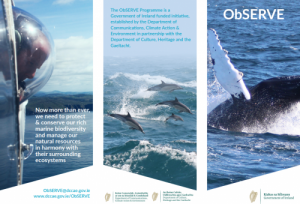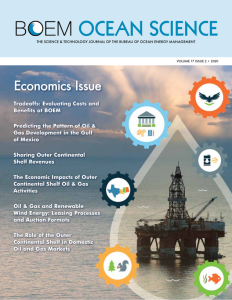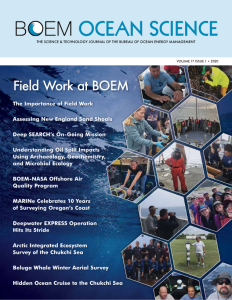
Acoustics Today, volume 18, issue 4
Sound perspectives from the Bureau of Ocean Energy Management and Ocean Noise
To promote shared knowledge and dedication to raising environmental performance standards, IOPER members share articles they have written and published in their own countries.
Cameron Grebe, NOPSEMA. The Regulator Issue 2, 2023(external link). First published 5 July 2023.
Consultation isn’t just about getting feedback – it’s about giving people who may be affected an opportunity to provide an informed perspective. Effective consultation with relevant persons is to ensure titleholders have all the information required to evaluate the impacts and risks by giving relevant persons a chance to provide information the titleholder may not otherwise have. This ensures all environmental impacts and risks of offshore petroleum activities are identified and appropriate measures are taken to manage those impacts and risks so that they are acceptable and as low as reasonably practicable (ALARP).
If a relevant person identifies that an activity may have an impact on them, titleholders should then offer them an opportunity to be consulted and to provide their input into how that impact could be best managed. The sudden increase in the breadth of consultation required with relevant persons following the recent Federal Court decision has presented a risk that the true purpose of consultation may be lost in a titleholder’s effort to complete the process. While consultation requires titleholders to provide information and seek feedback from relevant persons, there are additional requirements that also must be met. It must be clear to relevant persons why they are being asked to be consulted on an activity. The information provided to relevant persons must also be sufficient for them to make an informed assessment about whether an activity may have any impact on them.
The Environment Regulations have constructs beyond normal consultation such as a public comment process. Titleholders must demonstrate how the information provided by relevant person has informed the description of the environment and propose measures to address any objections or claims raised by relevant persons. The Federal Court decision highlighted that this is particularly important in protecting the cultural heritage, and traditional connections to Sea Country, of First Nations Peoples.
Through consultation, First Nations Peoples must be given an opportunity to provide information about their cultural heritage and traditional connections, any impact an activity might have on them, and how those impacts can best be managed. Going beyond feedback to ensure a genuine exchange and understanding of information and perspective is the best way to achieve the true purpose of consultation, meet the requirements, and protect our marine environment.

Sound perspectives from the Bureau of Ocean Energy Management and Ocean Noise

The Bureau of Ocean Energy Management's factsheet

A description of sounds commonly produced during ocean exploration and industrial activity by the Bureau of Ocean Energy Management Center for Marine Acoustics

Managing impacts of human-generated sound on marine life

In October 2014 a major marine scientific programme was established by the Department of Communications, Climate Action & Environment

Ocean Science is the science and technology journal of the Bureau of Ocean Energy Management (BOEM).

Ocean Science is the science and technology journal of the Bureau of Ocean Energy Management (BOEM).